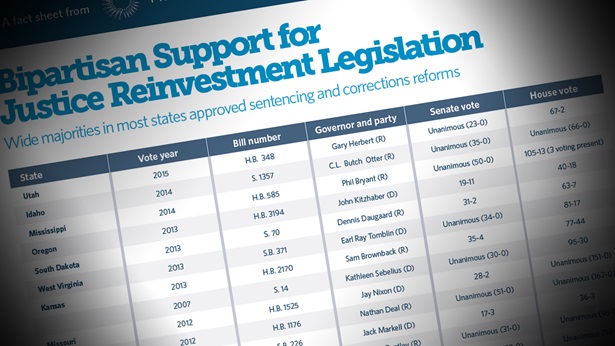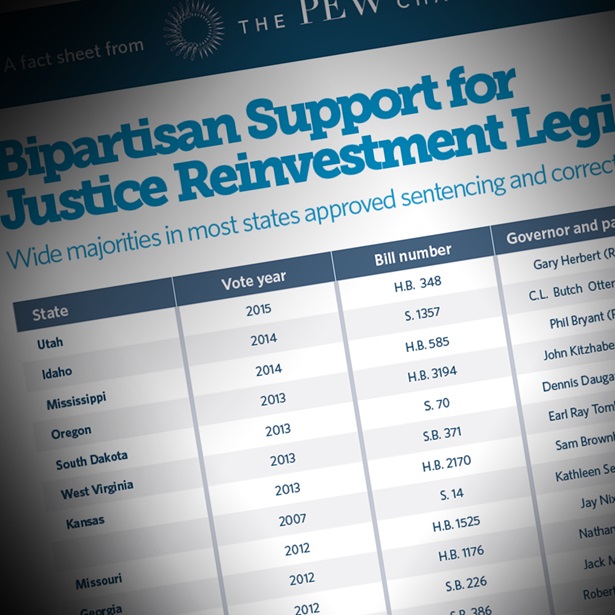3 States Enact Broad Corrections Reforms
Utah, South Dakota, and West Virginia are the latest states to enact reforms to their adult corrections or juvenile justice systems with overwhelming bipartisan support. The states’ legislative packages are designed to protect public safety, hold offenders accountable, and control corrections costs.
On April 9, Utah Governor Gary Herbert (R) signed into law sweeping criminal justice legislation that prioritizes prison beds for serious and violent offenders, strengthens probation and parole, and expands reentry and treatment programs. The new law is expected to prevent almost all of the projected growth in the prison population and save the state more than $500 million over the next two decades.
In March, South Dakota Governor Dennis Daugaard (R) and West Virginia Governor Earl Ray Tomblin (D) signed into law juvenile justice reforms that target the use of residential facilities to youth who are a public safety risk and reinvest the savings in evidence-based community programs. In all, the changes are expected to substantially curtail the number of juvenile offenders in state-funded facilities and save the states more than $50 million, combined, over the next five years.
Sentencing and corrections reforms advanced by the Justice Reinvestment Initiative (JRI)—a public-private partnership between Pew and the U.S. Department of Justice’s Bureau of Justice Assistance—have enjoyed strong bipartisan consensus in most states. Between 2008 and 2015, lawmakers in 29 states cast more than 5,700 votes in favor of JRI reforms and fewer than 500 in opposition. Through JRI, Pew, the Council of State Governments Justice Center, the Crime and Justice Institute, and other partners provide intensive technical assistance to these states.


America’s Overdose Crisis
Sign up for our five-email course explaining the overdose crisis in America, the state of treatment access, and ways to improve care
Sign up

Bipartisan Support for Justice Reinvestment Legislation
Wide majorities in most states approved sentencing and corrections reforms









